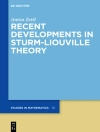Although transportation economists have advocated the tolling of urban streets as a mechanism for controlling congestion and managing travel demands for over 50 years, it is only recently that this idea has become practical. When compared to the alternative of building more roads, congestion pricing – in particular via electronic tolling – is attractive and has been adopted in countries around the world. Recent implementations in London, Singapore, and various cities in Norway, as well as a number of projects in the United States, have been judged successful.
This book presents rigorous treatments of issues related to congestion pricing. The chapters describe recent advances in areas such as mathematical and computational models for predicting traffic congestion, determining when, where, and how much to levy tolls, and analyzing the impact of tolls on transporation systems. The analyses and methodologies developed in this book provide:
– Mechanisms that aid in determining and comparing congestion pricing schemes
– Methodologies for evaluating the efficiency of existing and proposed congestion pricing schemes
– A means to predict the impact of pricing on urban transporation systems
– Information essential to the financial and political success of congestion pricing programs.
Spis treści
Improving Traffic Flows at No Cost.- Relaxed Toll Sets for Congestion Pricing Problems.- Dynamic Pricing: A Learning Approach.- Congestion Pricing of Road Networks with Users Having Different Time Values.- Network Equilibrium Models for Analyzing Toll Highways.- On the Applicability of Sensitivity Analysis Formulas for Traffic Equilibrium Models.- Park and Ride for the Day Period and Morning-Evening Commute.- Bilevel Optimisation of Prices and Signals in Transportation Models.- Minimal Revenue Network Tolling: System Optimisation under Stochastic Assignment.- An Optimal Toll Design Problem with Improved Behavioural Equilibrium Model: The Case of the Probit Model.












